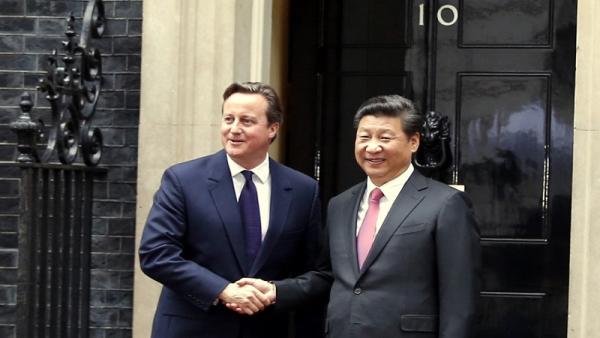Lonely mission for US' Deputy Sheriff in South China Sea
| Hannah Bretherton, Research Assistant, Australia-China Relations Institute, University of Technology Sydney |
This article appeared in the Sydney Morning Herald, March 15 2016.
A report commissioned by ACRI spells out the UK's pragmatic China policy.
“It’s not hard to produce a cold war with China,” former foreign minister Alexander Downer advised Bob Carr, the then incumbent. Right now, however, there are martial drums beating with US admirals hinting that Australia should join patrols in the South China Sea that the Chinese would view as decidedly provocative.
Then there is the possibility that Australia could be persuaded by the same US admirals to order Japanese subs, not because they’re the best deal but because of the opportunity for a big strategic statement. Australia would be enlisted in a trilateral push to contain the rise of China, which just happens to be our largest trading partner.
China is not only our top customer. It is in the throes of becoming a predominantly middle-class country with an additional 850 million middle-class consumers by 2030. This is the single best economic prospect for post-resources boom Australia.
The standout fact is that if we slide into a “contain China” camp, Australia risks going it alone (that is, with the exception of Japan).
All other US friends, partners and allies are running pragmatic China policies. They range from India’s carefully calibrated policy not to make the prophecy of conflict with China a self-fulfilling one to the comfortable closeness of South Korea under its current leadership.
An Australia-China Relations Institute (ACRI) report released today, by Professor Kerry Brown of King’s College London, finds that Britain and China are now realising the potential of “a new dawn for investment”.
Last year President Xi Jinping became the first Chinese President to visit Britain in a decade. He and Prime Minister David Cameron clinched deals worth about 40 billion pounds. According to Professor Brown, the visit marked a change of direction with Britain now running a China policy not from the Foreign Office but from the Treasury.
Four years ago the Britain-China relationship was marred by a Chinese diplomatic freeze after Cameron met the Dalai Lama. Since then Cameron and Chancellor of the Exchequor George Osborne have been working to make Britain nothing less than China’s “best partner in the West”.
In Australia we think balancing China and the US is uniquely our challenge. But Britain was the first of the G7 countries to set up a currency swap line with China and the first western country to sign up to the Asian Infrastructure Investment Bank while we hesitated. London aims to become the world’s leading centre for renminbi trading. If it succeeds Britain will have secured a major strategic role with the world’s second biggest economy.
In 2014, Britain became Europe’s number one recipient of Chinese foreign direct investment. China owns a share in British institutions ranging from Heathrow Airport to Weetabix. It can now add a 33.5 per cent stake in Britain’s Hinkley Point nuclear power plant. Britain has no foreign investment review board.
Britain’s possible EU withdrawal worries China as well as the US. President Xi urged against the “Brexit” during his visit, citing the importance of Britain’s membership as a conduit for stronger EU-China relations. More recently China’s richest man, Wang Jianlin, warned that a Brexit would spark an exodus of Chinese investors.
This is an invitation for France and Germany to compete harder. Both are committed to robust China policies. Last year, Premier Li Keqiang made an official visit to France and signed a landmark Airbus deal and Angela Merkel made her eighth visit to China since becoming Chancellor in 2005.
The report on Britain-China relations follows a study commissioned by ACRI last year on New Zealand’s China policy, which found it to be one of unabashed pragmatism. The country can boast a number of firsts including being the first western country to conclude a free trade agreement with China, loading its wine and dairy into Chinese supermarkets without tariffs, seven years before Australia.
Canada has prospects for an era of robust China relations under Prime Minister Justin Trudeau. He is tipped to pick up the legacy of his father, former prime minister Pierre-Elliott Trudeau, who established diplomatic relations with China in 1970. The Canadians are now pursuing a free trade deal, modelled on the Australian deal.
There is no question of New Zealand, Canada or Britain being enlisted to US patrols or running their own in the South China Sea. US admirals wouldn’t waste their breath putting the case; Australia is their only candidate. It would be a lonely mission for a deputy sheriff.
In the eyes of Westminster, the future of Britain-China relations is simple: economic opportunities for mutual advantage. For this, Professor Brown argues, Britain is willing to risk testing its alliance with Washington to take a pragmatic approach to China that serves its national interests.
Author
Hannah Bretherton is a Research Assistant at the Australia-China Relations Institute, University of Technology Sydney.

